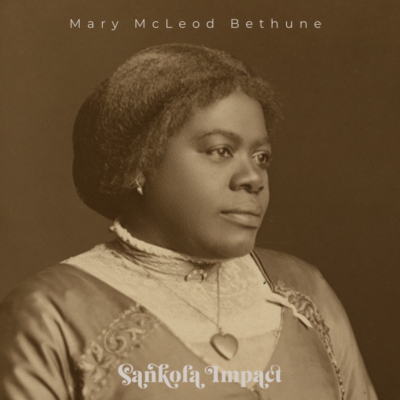“Believe in yourself, learn, and never stop wanting to build a better world.”
— Mary McLeod Bethune
On this day in 1875 Dr. Mary McLeod Bethune was born as the first free person in her family. At a young age she was given the opportunity to gain an education- a rare opportunity afforded to few Black people during this period in history. While her education prepared her for a life of missionary work abroad, she would ultimately become an educator, writer, and activist.
After marrying her husband, Albertus Bethune, the couple and their son moved to Florida. There she established two schools in Jacksonville and Daytona Beach. The Dayton Literary and Industrial Institute for Girls would later merge with the Cookman Institute of Jacksonville to form Bethune-Cookman College. In 1931, when the college received accreditation, Mary McLeod Bethune became the first Black woman to be president of a college.
In addition to her life as an educator, Bethune would champion civil rights through her work in both founding and leading various organizations. She was interested in ending segregation in schools, improving healthcare for Black children, and equal voting rights for women. She became the president of the National Association of Colored Women (NACW) in 1924. After her tenure, she went on to create the National Council of Negro Women (NCNW) to help empower women to social change and action.
Her call to social action did not end there. She would go on to become Vice President of the NAACP and the National Urban League. Her tireless work led to advising Presidents Calvin Coolidge and Herbert Hoover. Notably, President Franklin D. Roosevelt created the Division of Negro Affairs, appointing Mary McLeod Bethune as Director, making her the first Black woman to lead a federal agency.
Mary McLeod Bethune’s legacy of action and dedication to the work is an inspiration to many. She has been honored in many works, most recently in July of 2022. A statue of Mary McLeod Bethune stands in the National Statuary Hall at the U.S. Capitol, sent by the state of Florida. In a life marked by numerous firsts for her community, she again made history as the first Black person to represent a state in the National Statuary Hall.

